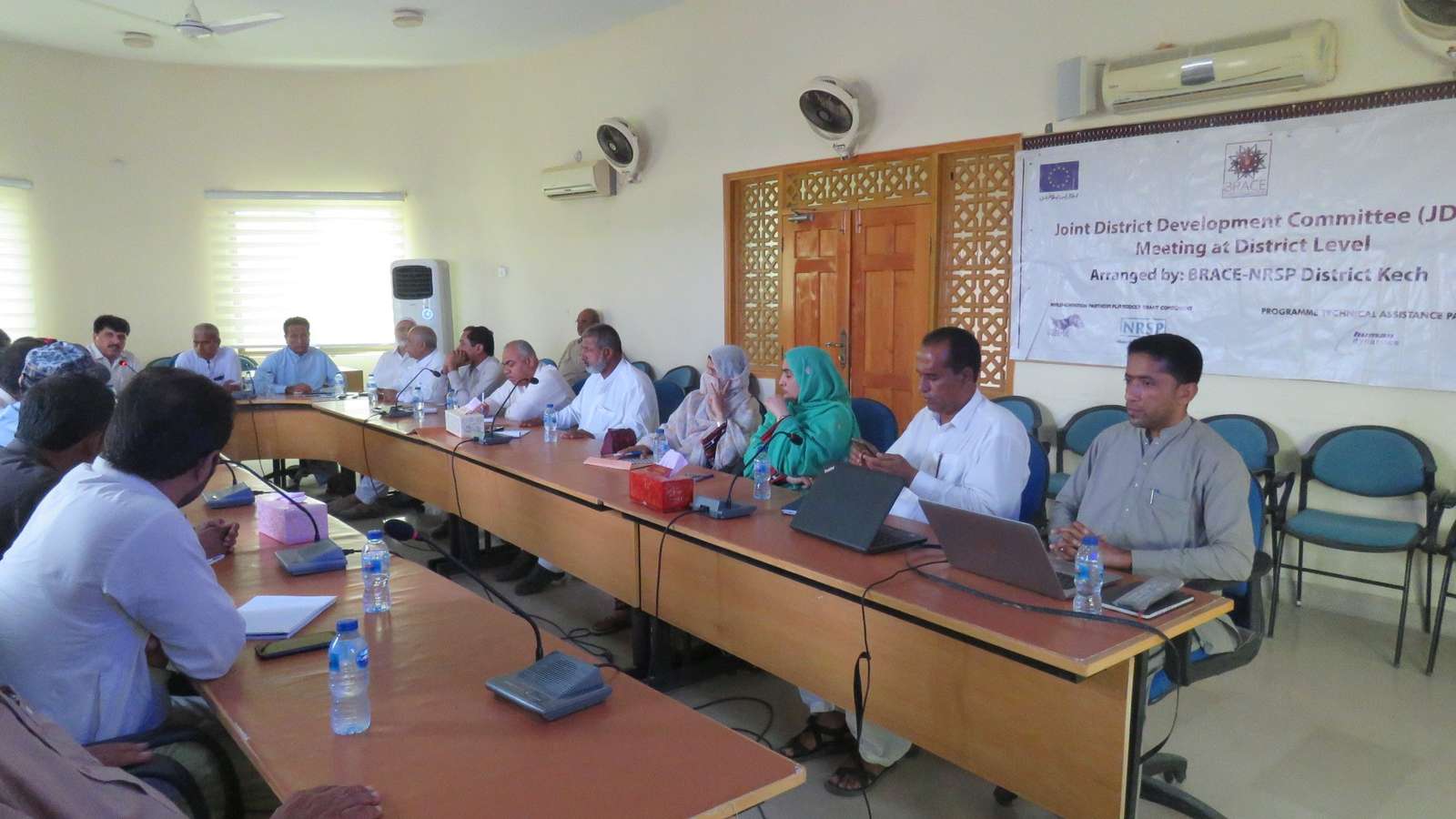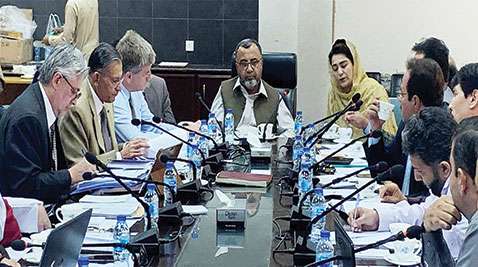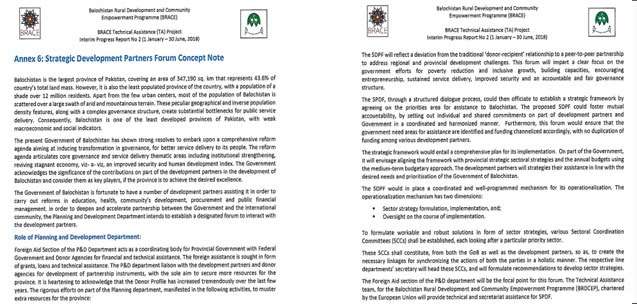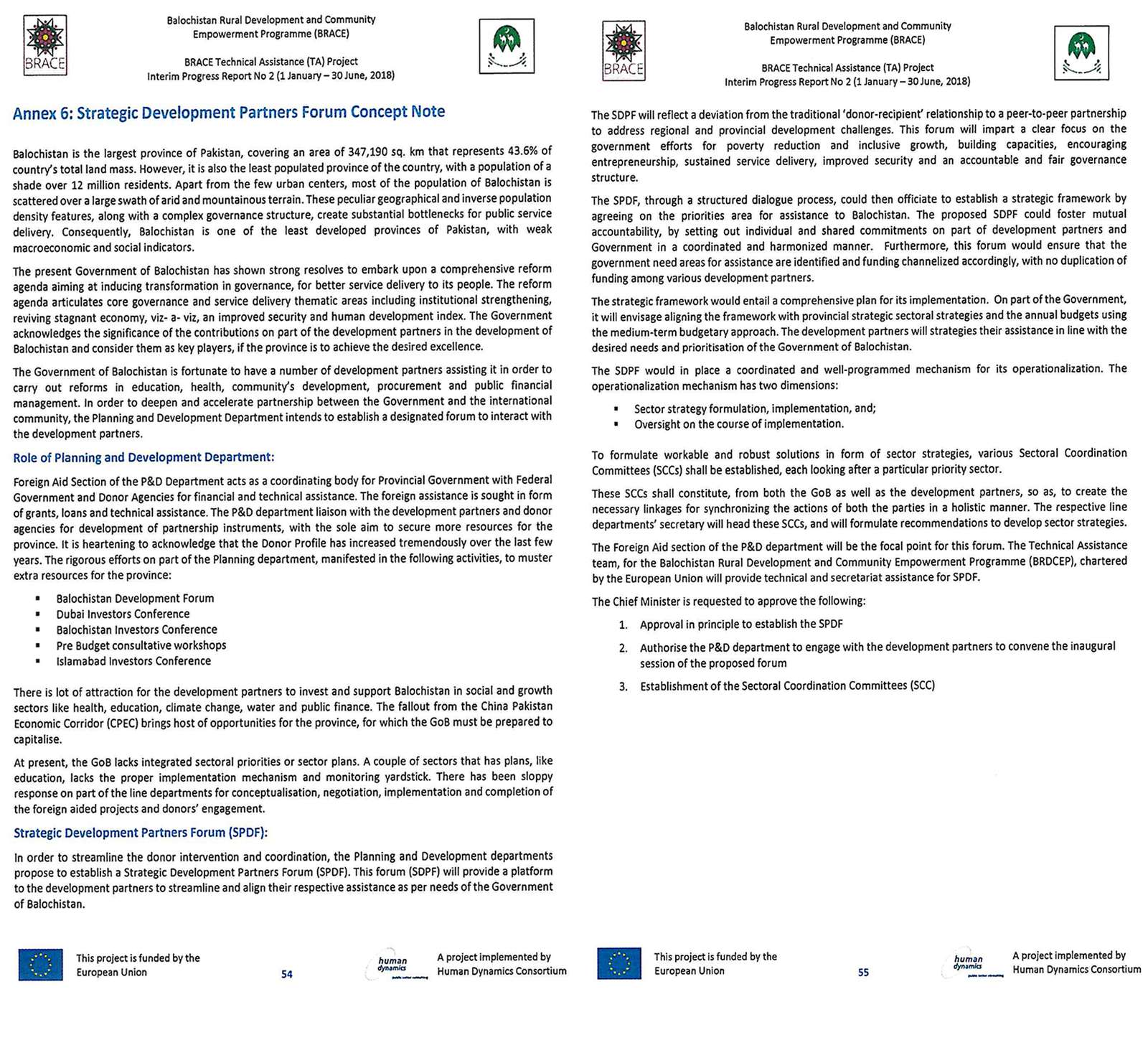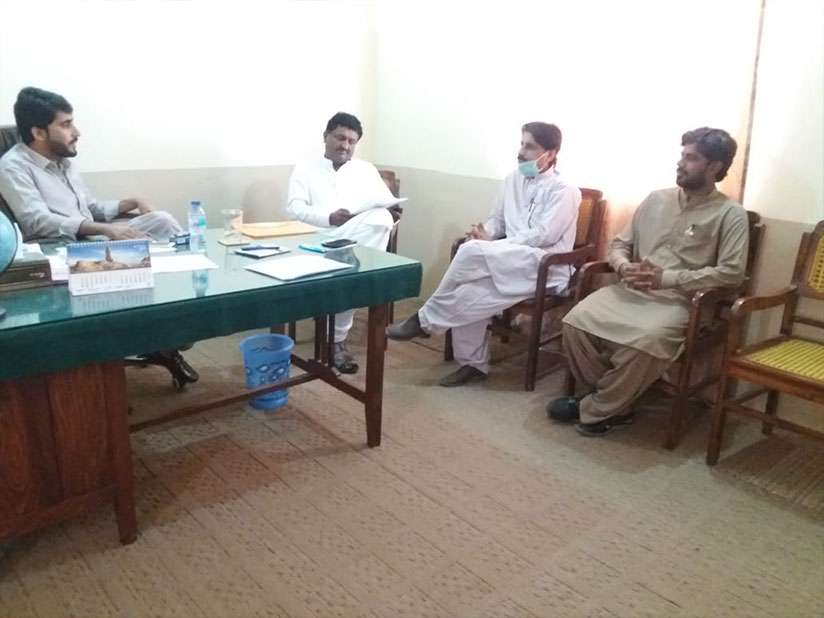BRACE Programme Policy & Fiscal Framework
Balochistan Legal & Policy Context
Balochistan’s vast geography, rich mineral and energy resources and untapped human resources potential, provides an opportunity to transform the existing situation. But to do so, we require strategic public policy reforms and we need to foster effective partnerships between communities and local authorities
Devolution of power to grassroots level, to provide better relief to the masses at their doorsteps, is a key governance principle for the Local Government Policy of Balochistan
The Government of Balochistan Policies and Reforms of the Local Government and Local Bodies systems, aim at the further Devolution of Power and the mobilization of all grassroots stakeholders
The Balochistan Local Government Act (LGA)
- Although the Balochistan Local Government Act, 2010 was passed to establish local governments within their jurisdictions and local government elections were subsequently held, there is the growing candid debate and impetus to further strengthen the local government system and amend the Act accordingly. The Act is limited on the need for public participation in community development, hence the urgent need for comprehensive reforms that will stimulate genuine CD-LG&RD.
- Currently, there has been a delay in conducting Local Council Elections that negatively impacts on (lack of) devolution.
- Accordingly, the BRACE TA has prepared an updated Action Memo that provides an update of the process to reform the GoB Local Government Act 2010 with recommendations and suggestions for:
- empowering local governments to possess mechanisms for more inclusive citizen involvement in local decision making and bottom-up Community-Driven Initiatives to stimulate genuine CD LG&RD.
- stronger institutionalized role for District Councils (DC) and DC Associations.
- The recommendations are also based on the UNDP/GIZ and the UCLG-ASPAC proposals.
- BRACE TA especially works on CD LG systems: Budgets, Financial Regulations (FRs), PFM, CD-LG&RD.
- The suggestions will be submitted to Secretary LG&RDD, and through the LG&RDD to the SPDC that will issue the necessary Policies and supporting Notifications before further presentation to the Cabinet for approval.
Community-Driven (CD) Local Government and Rural Development (LG&RD)

The Balochistan Rural Development and Community Empowerment (BRACE) Programme, is fully aligned with the Government of Balochistan LG and RD policies. BRACE aims to establish an innovative Government of Balochistan (GoB) Community-Driven Local Government and Rural Development (CD-LG&RD) Policy & Fiscal Framework.
The Balochistan Community-Led Local Governance Policy

from representative to participatory local governance
Devolution of power to grassroots level, to provide better relief to the masses at their doorsteps, is a key governance principle of Local Government in Balochistan.
This principle is captured in the LG Act (2010) Section 87, which stipulates that a Local Council “may sponsor or promote Community Development projects for its local area, subject to the approval of Government”. The LG Act Section 87 amendment in 2022 further strengthened this principle when “Community Institutions” were specifically mentioned, and accredited and institutionalized as partners in the Local Governance affairs.
The Balochistan Community-Led Local Governance (CLLG) Policy paves the way, and works out the pro-active participation by the mobilized and empowered Community Organizations and Citizens in the Balochistan Local Governance affairs. The innovative CLLG Policy fosters Citizen participation by strengthening their linkage to the 2 tiers of the Balochistan Local Governance systems, the District Council and the Union Councils.
At Union Council level, the CLLG Policy incorporates the Mobilized and Registered Community institutions. Firstly, the CLLG Policy Framework provides transparent Guidelines that specify a criteria-based system to Register and Mobilize Community Institutions, to enable them to become pro-active and institutionalized partners in the Local Government system. Secondly the CLLG Policy facilitates planning processes by the Community Institutions, that result in bottom-up Village- and UC-level Development Plans, based on Community-identified priority-needs and priority development investments, for endorsement by the UC Chairman and Secretary of the Union Council, as integral part of the Government UC Development Plan. A UC Tier that includes these Registered Community Institutions and their Mobilized Citizens, will have a strengthened relationship with the Local Councils, and thereby establishes a genuine “participatory” Local Governance system. At the same time, the integration of CIs at UC level, will make the GoB’s development programmes more effective, as the GoB’s outreach to the household level will be significantly increased
At District Council level the CLLG Policy Framework worked out guidelines to strengthen the role of the District Councils, especially the District Council function of effective development planning in the district, with regard to “drawing up a District Development Programme” as stipulated in section B(k) of the LG Act 2010. The CLLG provides comprehensive development planning guidelines and the establishment of the Joint District Development Committee (JDDC) will ensure the consistent integration of bottom-up community-led District, and UC -Development Plans, into the higher level Government District Development Programme.













